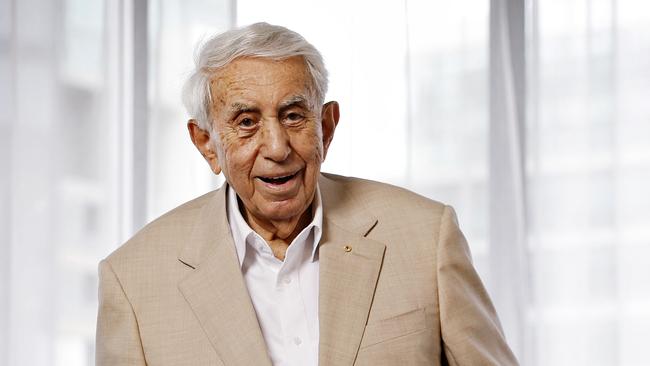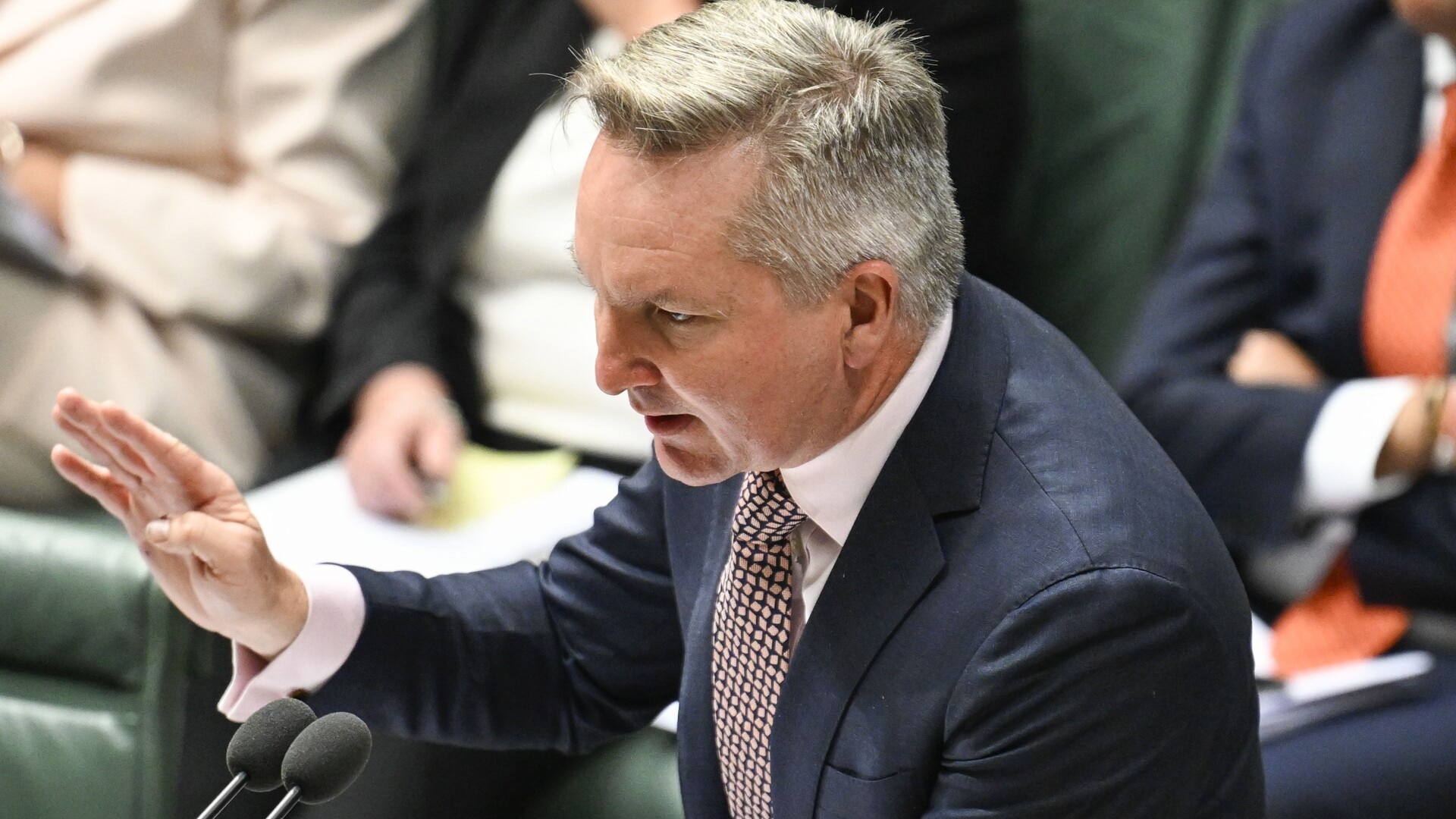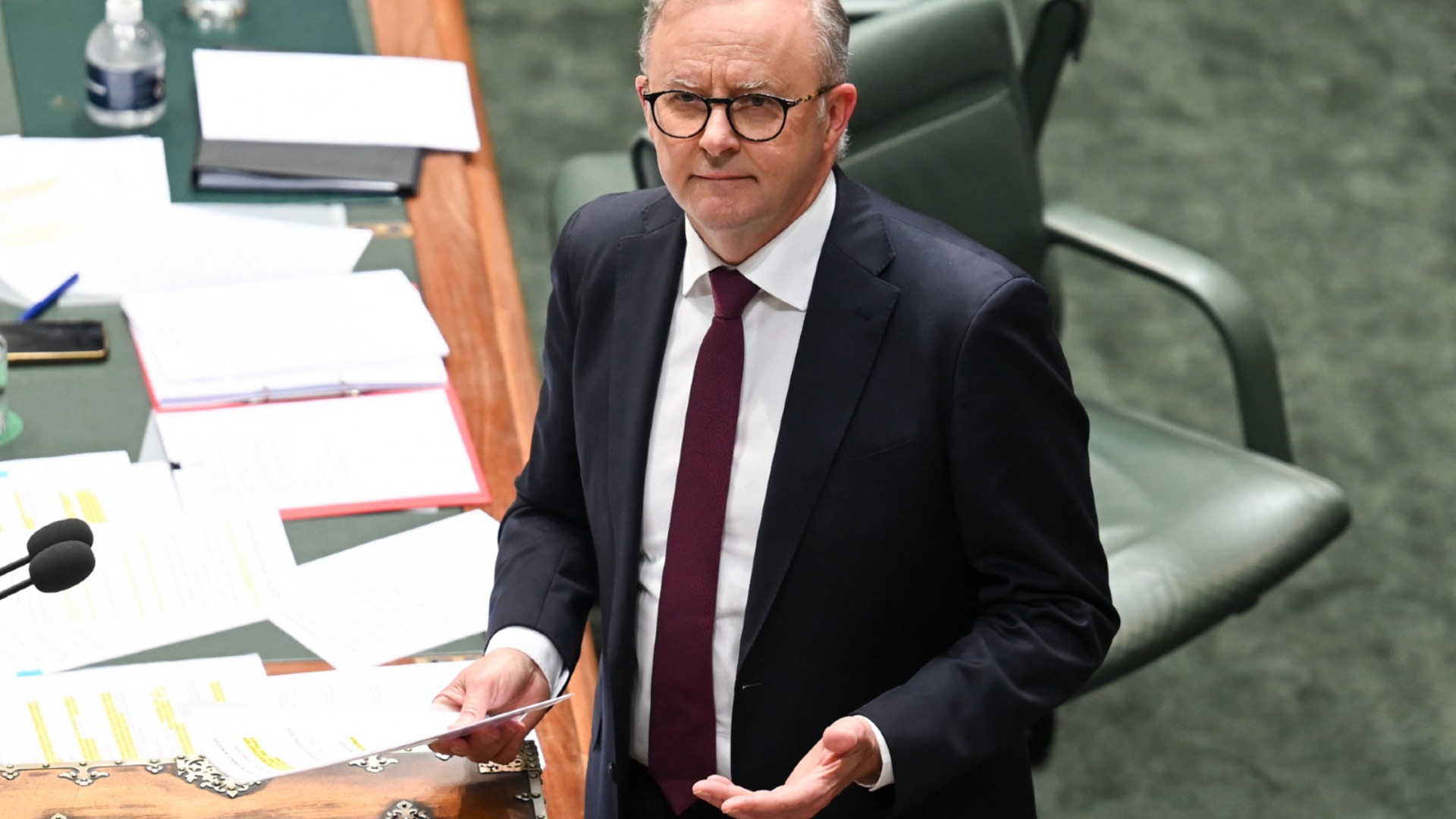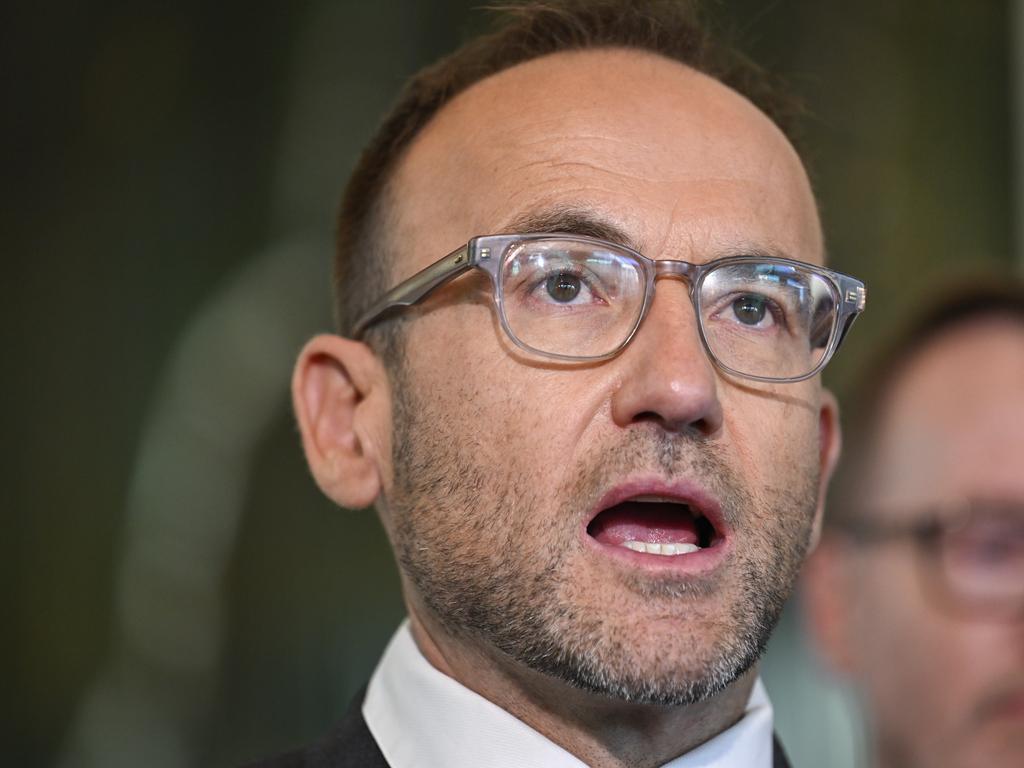ALP ‘up to decade late’ on renewables target, says Harry Triguboff
Billionaire real estate developer Harry Triguboff has forecast that Labor will be five to 10 years late in hitting its 82 per cent renewables target.

Billionaire real estate developer Harry Triguboff has predicted that Labor will be five to 10 years late in hitting its 82 per cent renewables target and called on the Albanese government to “take control” of state responsibilities in the electricity sector and put more focus on coal and gas.
The owner of apartment giant Meriton said the Albanese government should attempt to pass legislation giving the commonwealth ultimate control over energy policy, arguing a patchwork of state governments policies was making the transition slower and more expensive.
Mr Triguboff said a federal takeover of energy was the only chance the government had of hitting its 82 per cent renewables target in 2030, although he did not think this target would be reached until 2035 to 2040.
“It’s time the federal government took charge of all states to roll out a national plan to have any chance of reaching its 82 per cent renewable energy target by not 2030 but more likely 2035-2040 at today’s pace,” Mr Triguboff told The Australian on Thursday.
“To achieve this the legislation needs to change to allow the federal government to take charge.”
He said there needed to be more gas generation, especially in Victoria, while backing the extension of the coal fleet, which is on track to be retired by 2038.
“Coal plants need to be extended to meet the energy demands since … solar, wind, etc still needs huge investment in not only building these facilities but also the infrastructure to access, store and deliver the power to the densely populated areas due to their often-remote locations,” Mr Triguboff said.

The Meriton founder joins a wave of high-powered business leaders and groups warning about the Albanese government’s 82 per cent renewables target, including the Australian Chamber of Commerce and Industry, the Council of Small Business Organisations Australia, Independent Food Distributors Australia, Infrastructure NSW and the Minerals Council of Australia.
Grattan Institute director of energy Tony Wood on Thursday added his voice to those forecasting the renewables target would not be achieved on time.
Mr Wood said it was more likely about 70 per cent of Australia’s electricity would be generated by renewables by 2030, which he argued was a good effort despite it falling short of a key plank of the government’s plan to lower emissions by 43 per cent of 2005 levels by 2030.
“You have got to get the projects up and running and you have got to connect them to the grid. And it is the second one that is the most difficult,” Mr Wood said.
“We have got to build more transmission from places that have never had it before and we are doing it at a time when everything costs more and communities don’t like it.
“So building the transmission is the biggest bottleneck to achieving the target. My view is it still looks really tough.”
Mr Wood said the massive cost of increasing transmission infrastructure made it unlikely the transition to renewables would put downward pressure on electricity bills in the short to medium term.

“Neither side of politics should be promising to bring prices down,” Mr Wood said.
As Labor comes under pressure over its climate change targets, Peter Dutton defended his decision not to unveil a 2035 emissions reduction target before the election, despite criticising Labor for doing the same.
While Australia will have to set a 2035 target this year under the Paris agreement, Mr Dutton said it was difficult to model while in opposition. This is despite the Coalition commissioning independent modelling for its own nuclear power plans.
“We don’t have the capacity to model in opposition. The government has a lot of modelling and you would have expected them to have released their detail of their 2035 target by February,” Mr Dutton said.
“They’ve chosen not to do that because they don’t want to tell Australians about their secret plan which will jack up the cost of electricity.”
Mr Dutton said Labor was reliant on green hydrogen to reach its net-zero plans, arguing the energy sources was “not viable” and nuclear was a better option.
Mr Triguboff said the Coalition’s nuclear policy, which is opposed by state governments, showed why the commonwealth needed more legal power in the space. “All Australians want clean energy but at what cost? There must be a balance between what a country can afford and what Australians can afford,” he said.
“If the federal government can’t take control of the states, then an independent development corporation should be appointed, funded by all governments regardless of their political persuasion.
“This will enable the opportunity to roll out a national clean energy plan that is cost-efficient (and) at the same time have a more chance of reaching realistic targets.”





To join the conversation, please log in. Don't have an account? Register
Join the conversation, you are commenting as Logout